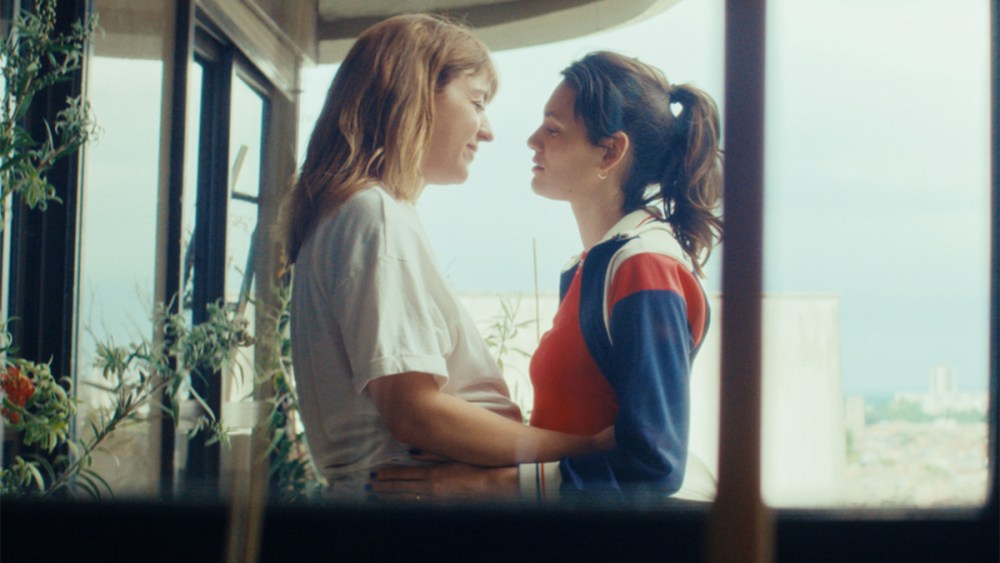Lesbian Couple Navigates Pregnancy in Cannes Debut
The year is 2014 in freshman director Alice Douard’s lightly comic drama “Love Letters” and French couple Nadia (Monia Chokri) and Céline (Ella Rumpf) are expecting their first child. Nadia is 37, so the duo have decided together that she should be the gestational parent, since, at 32, biology is somewhat more on Céline’s side, and perhaps there will be a future sibling. Perhaps they will take another trip to a Danish sperm bank. Perhaps Céline will carry this unknown theoretical child.
Perhaps, perhaps. This film is, however, firmly rooted in the here and now of these characters, the present moment of Nadia’s pregnancy and the stresses placed on the couple, which are sensitively explored within a warm and humane framework. Douard is clearly a writer-director who likes her characters and doesn’t particularly enjoy torturing them; she’s also been through what they’re going through, having completed the legal adoption of the child her wife gave birth to in 2018.
Both Rumpf and Chokri demonstrate compassion for the characters they play too, inhabiting them with sincerity and an understanding of their foibles. Many of the couple’s issues will be familiar to pregnant couples in general, regardless of the genders involved. What is the role of the non-gestational parent during a pregnancy? There are few who wouldn’t argue that the pregnant party is the main event, the star character, but what exactly is that supporting act? How does one play that role?
Céline wrestles with this challenge, and “Love Letters” is a film focussed on that experience. And while she accepts her secondary position, that doesn’t make her any less of a three-dimensional human being going through a huge life-altering experience. Rumpf plays all of this with immense sympathy and care. You can see her grappling inward with her own anxieties and doubts, and how she attempts to suppress all this for her partner. It’s a performance that reminds you exactly how great an actor Rumpf is.
Part of the challenging emotional terrain her character must negotiate is the result of the legal situation in France in 2014. Marriage and adoption for gay couples have been legalized, but for Céline and Nadia, that means Céline formally adopting their child after it is born — a complex process. On the one hand, it is necessarily complex, since adoption is a serious procedure with lifelong welfare implications. On the other hand, the situation is wildly unfair, because straight couples are not placed in the same position – even if the prospective male guardian is not the biological father. Any useless, toxic or otherwise unsuitable man can become a child’s legal father, without being subject to the thorough checks that these women must face.
Céline and Nadia in contrast are asked multiple intrusive questions about everything from their health to their social life to their family dynamics. This last bit is especially spicy for Céline, since her relationship with her own mother (an excellent Noémie Lvovsky) is a difficult one. Soliciting from her parent a supportive written statement (the “proof of love” alluded to in the film’s French title, “Des preuves d’amour”), required for the adoption, is perhaps the trickiest hurdle in a journey which ought to be joyous, and is instead fraught with various microaggressions and unacknowledged trauma.
Set next to some of the bigger films at Cannes, dealing with sweeping international crises or making big swinging artistic statements, “Love Letters” is an undeniably modest drama. But it is beautifully realized and broadly relatable, with a tight, humane focus on individual people’s ordinary hopes, dreams and fears, set against the backdrop of a particular moment in French social progress.


